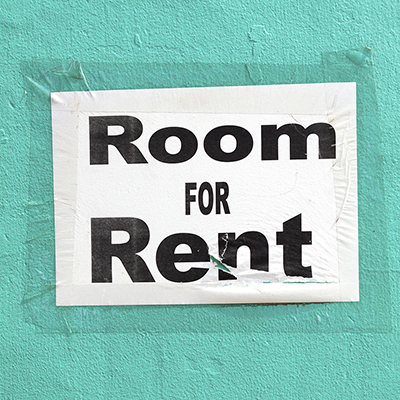
Published: January 28th, 2016 in Business
The Rent a Room Scheme allows you to earn some tax free income from renting out furnished accommodation to a lodger, in your main home. Currently you can earn up to £4,250 per annum tax-free, which is halved if you share the income with somebody else. However, from 6 April 2016 the threshold will rise to £7,500 a measure which was announced in the Summer 2015 Budget, and which is the first change since 1997.
Unlike a tenant, a lodger lives in the landlord’s home and shares living accommodation. It should be noted that a lodger can’t live in a self contained living space with a separate entrance as this would class them as a tenant and you will not be eligible for rent a room relief.
Am I eligible?
Until now only home owners could benefit from the scheme but following the Government’s announcement in the Summer 2015 Budget that it was introducing measures meaning that landlords can no longer prevent tenants from subletting rooms on a short term basis, tenants can now also take advantage of this scheme. It does not apply if the accommodation is used as an office or for business use, however a genuine lodger who uses space for studying or do some work from home is OK.
Can traders take advantage of rent a room relief?
Guest house and bed & breakfast owners can benefit from the scheme. However, to qualify the owner of the business must also permanently live at the property where the lodgings are offered.
In this scenario the business owner’s business expenses cannot be deducted from their gross revenue and it is common that the expenses will be more than the rent a room threshold. Therefore, they may be better off avoiding this relief in favour of deducting allowable expenses from their gross revenue instead
Find out more about The Financial Management Centre’s tax return services here
How to apply for rent a room relief
If you are earning less than the rent a room threshold you do not need to do anything, however you must complete a Self-Assessment tax return if your income is more than the exemption limit. You can choose to opt in to the scheme and claim your tax free allowance or record income and expenditure on the property pages of your tax return.
Example
If your business expenses outweigh the current £4,250 threshold, you will be better off choosing to deduct allowable expenses instead.
Here is an example to illustrate this point:
Terry has decided to rent out a bedroom in his home. He wants to charge £180 per week/£9,360 per year. This means Terry’s rental income will be £5,110 more than the rent a room relief threshold. Terry must therefore complete a tax return.
If Terry is a basic rate tax payer he will pay 20% of the £5,100 in tax, which amounts to £1,022. If Terry was a higher rate tax payer then he would be liable to pay tax of £2,040.
If his expenses from the room rental are less than the £4,250 threshold, he is best off electing to pay tax with the benefit of rent a room relief.
For instance, let’s say Terry’s rental expenses are £2,100. If he decided to treat the £9,360 income as rental income, he will pay tax on his profit of £7,260. His 2015/16 tax bill will be £7,260 x 20% which is £1,452. This is £430 more than what is payable if he elects to pay tax under the rent a room scheme.
If you elect to pay tax by deducting allowable expenses from rental income, you must also retain all receipts and related paper records and complete the additional pages on the Self-Assessment Tax Return. In any case we would always suggest keeping your records you might one day decide to opt out of the scheme and so being in the habit of keeping records will ensure you don’t fall foul of anything.
From 6 April 2016 the relief increases to £7,500 a move which is believed will mean the majority of ‘lodger landlords’ will not have to pay tax.
Other Things to Consider
- A lodger could affect your council tax bill
- If you receive housing benefit this could be affected as a result of taking in a lodger
- You will have to tell your insurer, who in turn may increase your premium
- If you have a mortgage you should check your agreement to make sure there is nothing preventing you from taking in a lodger
- If you provide additional services such as meals and laundry any income you receive must be added to the rental income
Further resources
- HMRC’S official guidance on rent a room schemes
- HMRC’s official guidance on retaining tax related records
- HMRC’s official guidance on income tax


